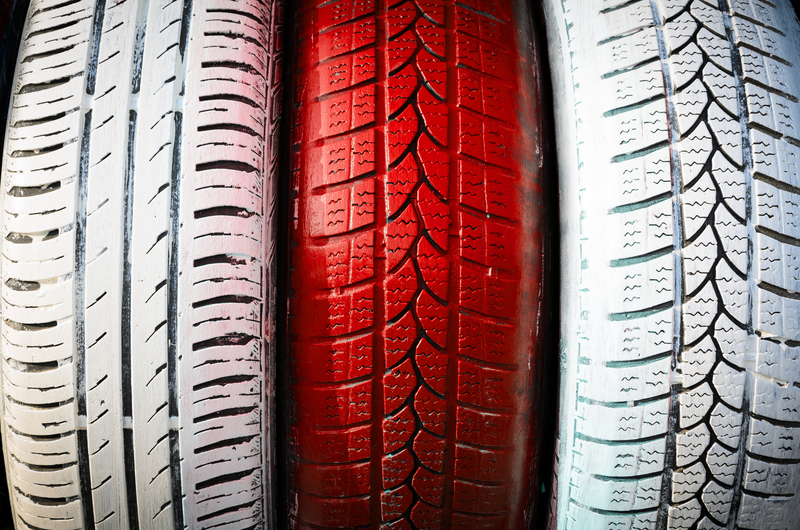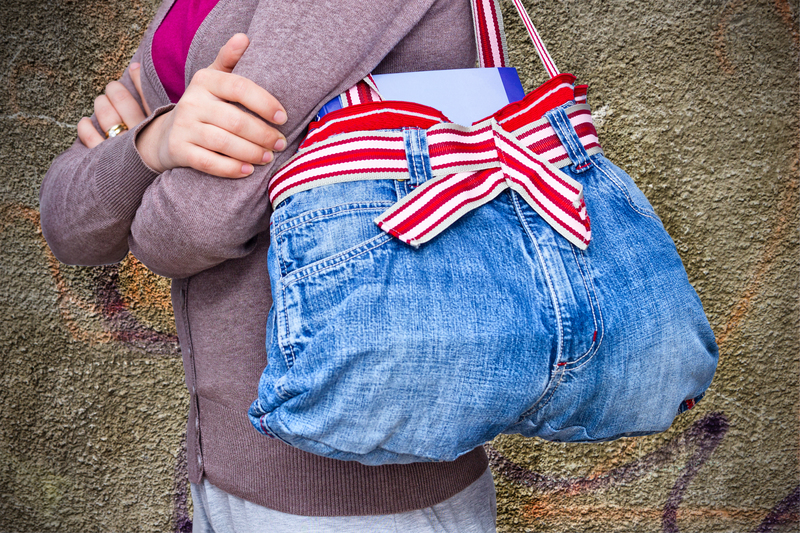Why Disposing of Pots and Pans Properly Matters for the Environment
If you've ever wondered what to do with your old, damaged, or unwanted cookware, you're not alone. Whether it's a scratched nonstick pan, a dented stainless steel pot, or a rusted cast iron skillet, knowing the right way to dispose of or recycle these items is crucial. Proper disposal of pots and pans is significantly more important for the environment than most people realize. In this comprehensive article, you'll discover why disposing of cookware properly matters, the environmental implications of improper disposal, and eco-friendly alternatives to sending obsolete cookware to the landfill.

Understanding the Environmental Impact of Pots and Pans
On the surface, cookware seems harmless. However, the production, use, and disposal of pots and pans can have far-reaching consequences for our planet. Why is it important to dispose of pots and pans responsibly? The answer lies in the materials, the waste, and the challenges posed by our throwaway culture.
The Materials Behind Your Cookware
Most pots and pans are made of materials such as:
- Aluminum
- Stainless steel
- Copper
- Cast iron
- Nonstick coatings (Teflon and ceramic, for example)
- Plastic or silicone handles and lids
Each of these materials has an environmental footprint--from the extraction of raw materials to manufacturing, transportation, use, and ultimately, disposal. Many metals are recyclable and reusable, but only if they are actually sent to appropriate recycling facilities instead of landfills.
The Problem with Throwing Away Old Pots and Pans
Improper disposal--tossing cookware into household trash--leads to environmental issues such as:
- Landfill waste: Pots and pans are bulky and can take hundreds of years to break down.
- Resource depletion: If items are not recycled, we lose valuable metals that could be reused.
- Chemical leaching: Nonstick pans, especially older ones, can contain chemicals that leach into soil and water from landfill sites.
- Greenhouse gas emissions: Manufacturing new cookware from raw materials consumes a huge amount of energy.
Why does proper disposal of pots and pans matter for the environment? It's because every step in the life cycle of your cookware--from creation to disposal--impacts resources, emissions, and the health of our planet.
What Happens When Cookware Ends Up in Landfills?
Disposing of cookware the wrong way by simply throwing it into the garbage can have many negative effects:
Waste Volume and Space Concerns
Many household waste facilities are already overburdened. Pots and pans are not biodegradable, and their size means they consume a lot of landfill space. Over time, this contributes to the urgent problem of waste management worldwide.
Chemical Pollution
Do cookware materials pollute the environment? Yes, especially if they contain synthetic chemicals. Nonstick pans made with polyfluoroalkyl substances (PFAS) and older Teflon coatings are especially concerning. When left to degrade in landfills, these substances can seep into groundwater, harming wildlife and potentially entering the human food chain.
Lost Opportunities for Metal Recycling
Throwing away pots and pans means that recyclable metals such as aluminum, copper, and steel are lost forever. Metal recycling consumes about 95% less energy than producing new metal from ore. When we throw away metal cookware, we increase demand for environmentally destructive mining and smelting.
Recycling Pots and Pans: A Key to Environmental Protection
Can You Recycle Pots and Pans?
Yes! Most metal pots and pans can be recycled. However, the method depends on the type of cookware and your local recycling rules.
How to Recycle Cookware:
- Contact your local recycling center: Find out if they accept metal cookware. Some require that plastic handles or glass lids be removed first.
- Scrap metal yards: These facilities are usually happy to accept metal pots and pans of any kind, even if they're rusted or broken.
- Specialty programs: Some manufacturers or retailers offer take-back or recycling programs for old cookware when you purchase new products.
- Donation: If the item is still usable, donating to shelters, charities, or thrift stores ensures pots and pans continue to serve a purpose and delay their environmental impact.
Why does recycling cookware matter for the environment? Recycling pots and pans conserves resources, reduces energy use, lowers emissions, and keeps valuable metals in circulation.
Special Considerations for Nonstick and Coated Cookware
Not all recycling centers will accept nonstick or ceramic-coated pans due to the difficulty of separating the metal from coatings. Check with your facility before dropping off these items. Otherwise, try to find a scrap metal recycler who will accept coated cookware or break off handles and coatings yourself if possible.
Repurposing and Reusing: Creative Alternatives to Disposal
If you can't recycle, consider repurposing. Why is reusing pots and pans better for the environment? Because it saves energy, reduces demand for new products, and keeps waste out of landfills.
Ideas for Upcycling Old Cookware
- Plant containers: Use old pots, pans, or teapots as quirky planters for herbs and flowers.
- DIY home decor: Cast iron pans make rustic wall art; lids become clocks or mirrors.
- Storage: Use old pans to organize tools, craft supplies, or even as serving trays for garden parties.
Every creative upcycling project is another item spared from the landfill.
Health and Safety Considerations in Cookware Disposal
Beyond environmental reasons, proper disposal of pots and pans prevents risks to sanitation workers and the public. Broken or chipped cookware can cause injuries. Leaching chemicals from coatings can contaminate trash sorting and recycling centers.
Safeguard Your Family and Workers
- Wrap sharp edges: If a pan is broken, wrap it securely before disposal.
- Label hazardous coatings: If you're discarding nonstick cookware, label it if local authorities require.
- Follow community guidelines: Many municipalities have specific rules for bulky or hazardous waste.
The Global Picture: Waste and Resource Scarcity
It's important to see the disposal of pots and pans as part of a larger story: the global crisis of waste and resource depletion.
- Worldwide, millions of tons of metal are thrown away each year--metal that could be recycled and reused.
- Rapid depletion of ores: Mining for aluminum, copper, and iron has devastating effects on ecosystems, soil erosion, and water resources.
- Landfill overflow: Landfills are reaching capacity at an alarming rate, pressing the need for improved waste management and recycling.
Why Consumer Action Matters
Every individual action counts. By properly disposing of cookware, you:
- Reduce demand for new resources
- Cut associated emissions
- Contribute to a circular economy
- Help combat climate change and pollution
Taking Action: Best Practices for Environmentally Friendly Disposal
1. Inspect Before You Toss
Is the pan still safe and usable? Donation is always greener than disposal.
2. Separate Components
Remove handles, knobs, and other parts made from plastic, silicone, or wood. Recycle or dispose of these separately when possible.
3. Contact Your Annual Cleanup Program
Many cities offer annual household hazardous and bulky waste collections. Use these opportunities to responsibly discard your unwanted cookware.
4. Seek Out Specialized Recyclers
Some recycling centers or scrap metal yards specialize in accepting all types of cookware, including those with coatings.
5. Educate Family and Friends
Spread the word about the importance of proper pots and pans disposal. The more people know, the greater the collective benefit for the environment.

Eco-Friendly Alternatives to Traditional Cookware
One long-term solution is to invest in sustainable cookware designed to last a lifetime. Look for brands that use recycled metals, avoid toxic coatings, and offer take-back recycling programs for the end of the product's life.
- Choose cast iron or stainless steel: These materials have long lifespans and are highly recyclable.
- Avoid cheap nonstick pans: They wear out quickly and are difficult to recycle.
- Support companies with recycling initiatives: Some brands now collect old cookware for recycling when you buy new items.
Conclusion: Every Pan Counts
Why is disposing of pots and pans properly important for the environment? Because it protects natural resources, keeps landfills from overflowing, limits pollution, and supports a more circular, sustainable economy. It also ensures fewer greenhouse gases are produced, and valuable metals are not wasted.
No matter how small, your decision about what to do with an old pot or pan has a ripple effect on the planet. Next time you upgrade your cookware or find a chipped pan in the back of the cupboard, remember: responsible disposal matters--for the environment, for your community, and for future generations.
- Recycle metal cookware whenever possible
- Donate usable items
- Repurpose creatively
- Support sustainable manufacturers
By taking these simple steps, you can ensure your old pots and pans don't become part of the world's growing waste problem. Instead, they can contribute to a greener, cleaner world--one kitchen at a time.